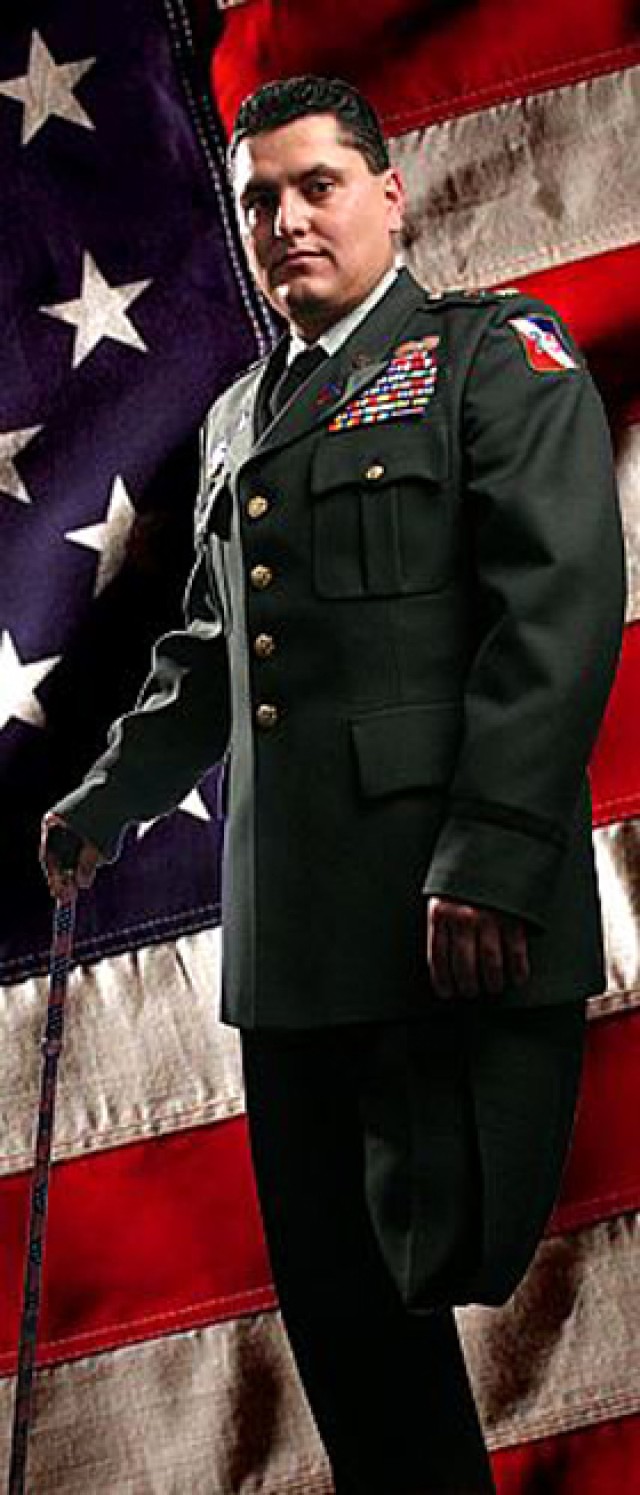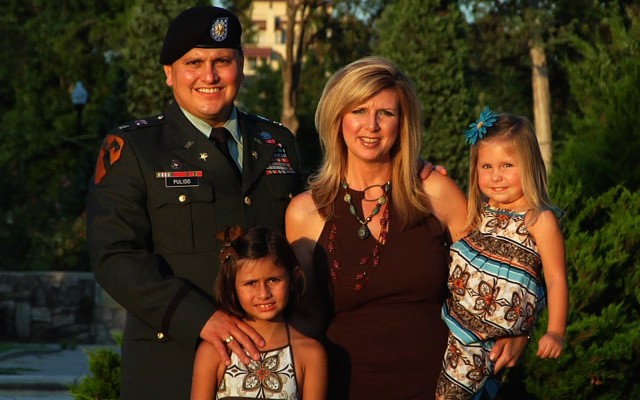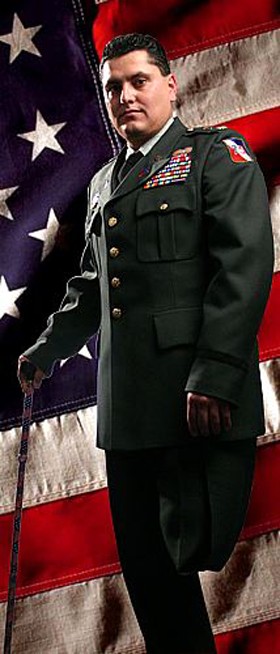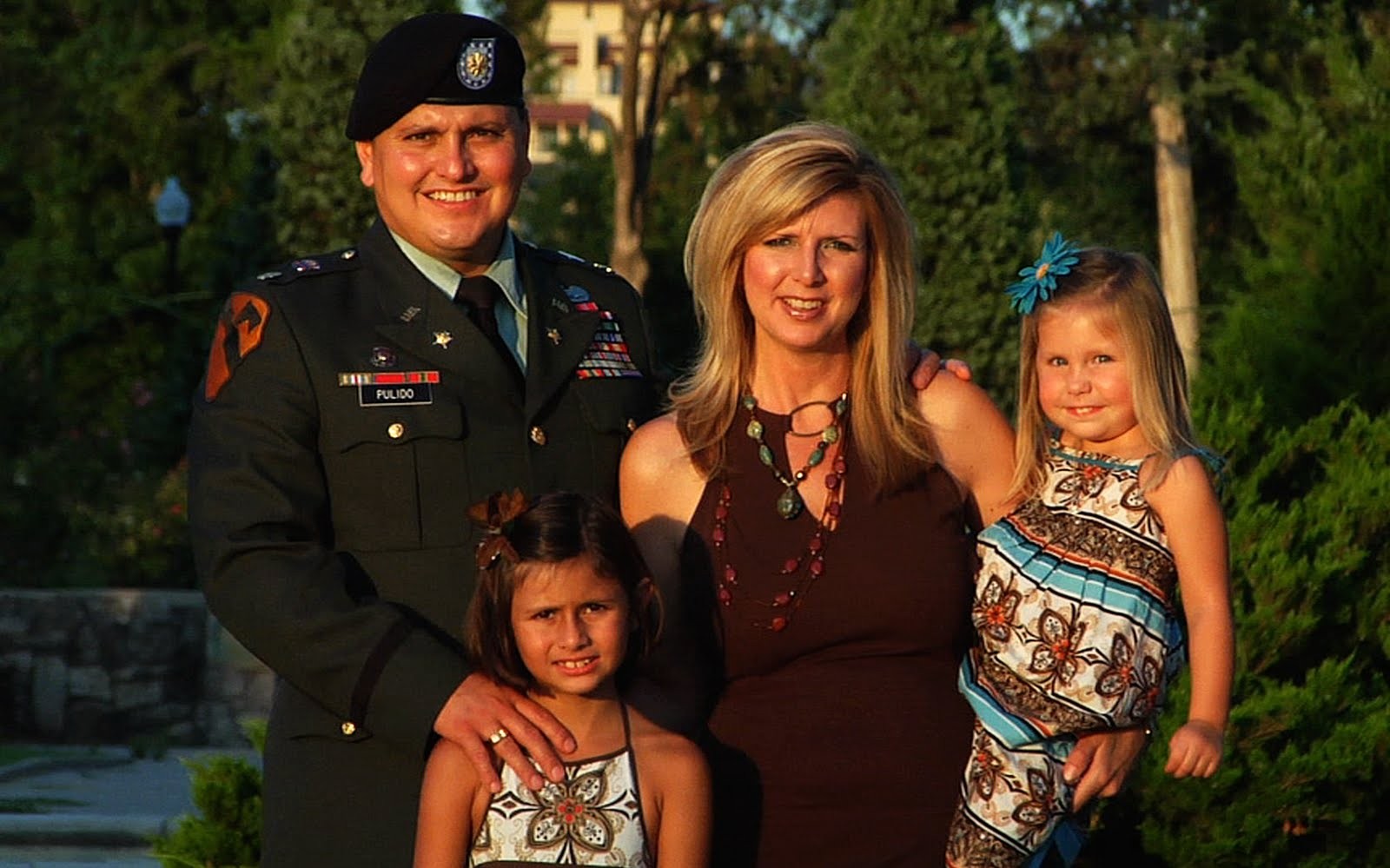WASHINGTON (Army News Service, Sept. 13, 2010) -- Two years ago, Maj. Jeff Hall found himself in the backyard of his house, with a pistol to his head, looking for an honorable way to end things.
Treatment from the Deployment Health Clinical Center at Fort Riley, Kan., and involvement in the Defense Centers of Excellence-sponsored "Real Warriors" campaign helped Hall overcome his suicidal ideations.
"The three weeks I spent out here, I really got to know myself, got to reintegrate with my wife," Hall said. "And I think that's what saved me."
The U.S. Army has taken the lead in developing treatment and techniques to prevent suicide, but the area of evidence-based practices in the field of suicide is relatively new.
It's emerging in the civilian world, but there's definitely a lag as far as the military is concerned, said Dr. Ramya Sundararaman, public health physician, Defense Centers of Excellence for Psychological Health and Traumatic Brain Injury.
Current treatment for suicidal ideations is determined on a case-by-case basis. Factors that can influence treatment include underlying mental illnesses, substance-abuse issues and traumatic brain injuries. There are evidence-based treatments in the prevention field that have made progress.
"Cognitive behavioral therapy is one of the therapies that has shown to be effective in the treatment of suicide ideation and suicidal attempts," Sundararaman said.
The Army is offering other techniques to prevent suicide. Soldiers can enroll in Warrior Adventure Quest, a program that maintains high levels of arousal and then brings servicemembers down slowly, eliminating the "crash" Soldiers experience that is thought to lead to suicidal ideations.
"There were times in Baghdad that we never felt so alive," said retired Maj. Ed Pulido, who lost a leg in combat and experienced thoughts of suicide. "And then we came back to what' It was from going 600 miles an hour to zero. And that was a very, very difficult stop for us."
That abrupt stop led to an identity crisis for Hall in all aspects of his life, and he said his mind was consumed with war while he was looking for proper ways to slow down.
"My issue was a loss of identity of what I was doing, not just for the military but for my family, for my life," Hall said. "I had a multiple deployments and they were practically back-to-back, but it had nothing to do with the deployment itself that caused suicide to become grabby for me."
The sudden change after redeployment is an issue, and Hall said there are abandonment issues when leaving a combat unit.
"I'm a big advocate of not letting units shatter when they come back from deployments," he said. "I believe that units need to stay together until they're healed."
As Hall stood outside with a gun to his head, his wife found him and managed to stop the suicide attempt. She called his boss, who was able to get Hall the help he credits with saving his life. Worrying about repercussions and developing a stigma is a poor reason not to get help, he said.
"I have not received any repercussions. As a matter of fact, it kind of jumpstarted the second half of my career, to be honest with you," Hall said. "I have been able to advocate for Soldiers through the Real Warriors program and help bring awareness to psychological issues throughout all of DoD and different organizations."
Hall said he has seen commands support suicide prevention, and with more education, training and resources the stigma attached to troubled Soldiers will be eliminated.
It's very important that senior leaders don't ignore warning signs and risk factors for suicide. The last thing a Soldier with suicidal ideations needs is to deploy, because once you get him in that environment, he could be a detriment to his fellow servicemembers, Pulido said.
Soldiers giving away prized possessions, exhibiting high-risk behavior or treating loved ones poorly are all signs of suicide ideations, and it usually takes intervention from someone else to get that person help, Sundararaman said.
The civilian world has a head start in developing sound treatment for suicidal ideations, but the Real Warriors campaign is tasked with working alongside private industry to supplement the Defense Department's research.
"What that means is having the Veterans Administration, VA hospitals or vet centers working with private- contract workers that are dealing with the psychological issues or mental health research," Pulido said.




Social Sharing